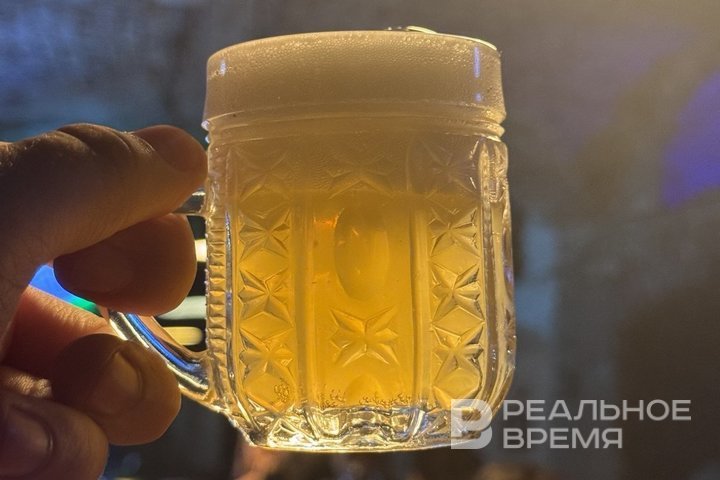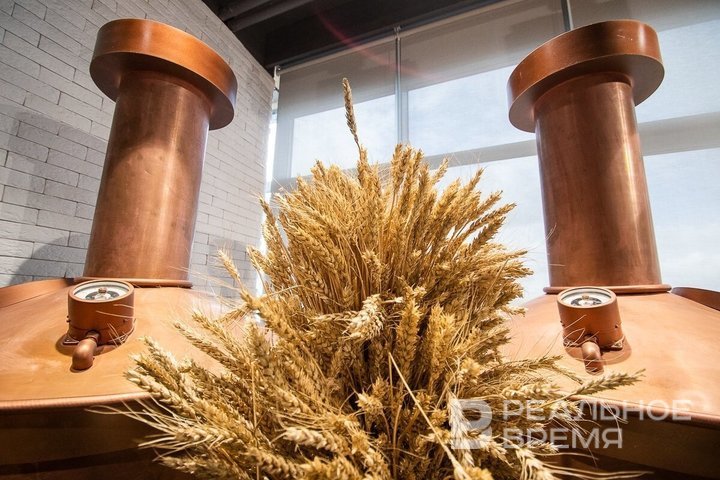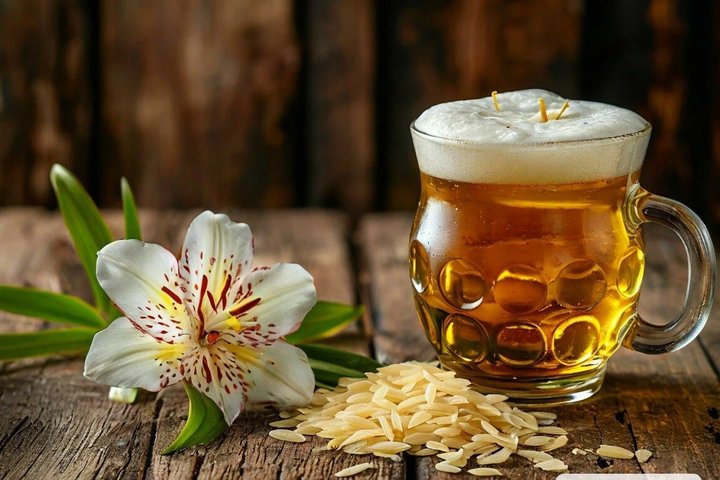Tatarstan sees decline in beer production and sales
In the first half of 2025, the republic produced almost a million decalitres less beer and beer drinks than a year earlier

In Tatarstan, beer and beer drinks production decreased by about a million decalitres over the year — from 26.7 million to 25.8 million decalitres. Nevertheless, this volume accounted for almost a fifth of the total figures for the Volga Federal District. Retail beer sales in Russia fell by 13% in the first quarter of 2025 compared to the same period last year, to 137.191 million decalitres. In Tatarstan, beer sales also fell. Read more about it in the report of Realnoe Vremya.
Tatarstan's share of the Volga Federal District beer market is 18%
The total production of beer and beer drinks in Tatarstan in the first half of 2025 reached 25.8 million decaliters, according to a report by the Federal Service for Control over Alcohol and Tobacco Markets. However, a year earlier, Tatarstan brewers produced more beer — 26.7 million decaliters.
The overwhelming majority of the output, 25.1 million decaliters, this year accounted for standard beer with an alcohol content of 0.5% to 8.6% and beer drinks. The production of beer drinks reached 639,100 decaliters.

In the first half of 2025, the total production of beer and beer drinks in Russia amounted to 455 million decaliters. The Volga Federal District produced 141.7 million decaliters.
Tatarstan's share in the total production of beer and beer drinks in the Volga Federal District is approximately 18.2%. This means that almost one fifth of all brewing products in the Volga Federal District are produced in Tatarstan. The republic's contribution is also noticeable at the all-Russian level, accounting for about 5.67% of the total production of beer and beer drinks in the country.

“I don't think Tatarstan will be able to take a good share of the market”
Annual changes in beer production volumes in Tatarstan are normal. This opinion was expressed by the chairman of the Beer Association of the republic, Rinat Akchurin, in a conversation with Realnoe Vremya:
“These are normal production volumes. An annual decrease is an insignificant difference. Production depends on the weather, and some differences are normal. This goes without saying.”
Tatarstan's current share of the all-Russian market is small, he believes. At the same time, in his opinion, the republic can hardly count on its significant increase.
“I don't think Tatarstan will be able to take a good share of the all-Russian market. For this, you need a large enterprise in the republic. We only have three of them. Nevertheless, we produce very high-quality beer. The quality is at a very high level, this is closely monitored,” he said.

Along with production, beer sales are also declining, both in the republic and in the country as a whole. Moreover, a sharp decline in sales of the foamy drink in Tatarstan occurred at the end of the first quarter of the year — 3.9 million dal versus 5 million in the first quarter of 2024 (the editor's note: there is no data for the second quarter of 2025 yet).
Until this point, product sales have shown steady growth. Thus, in 2020, 21 million dal were sold to the population, in 2021 — 22.3 million dal, in 2022 — 23.15 million dal, in 2023 — 23.22 million dal, in 2024 — 23.9 million.

In catering establishments, the situation is different. Artem Tyazhelov, the owner of several beer restaurants, told Realnoe Vremya that the demand for beer remains.
In establishments, the situation is somewhat different.
In addition, the product is becoming a more familiar drink. For example, bitter IPA, which was previously considered niche, has become noticeably more popular. Now it is sold in almost all establishments, the entrepreneur noted.
“There is no demand for Tatarstan beer in my establishments, visitors drink the giants of the market. Our producers are very slow. Large players follow trends and keep up with the times, responding to requests — they have a wider range, there are some new formats, craft,” continued Tyazhelov.
In his opinion, local producers lack the “trendiness” for widespread distribution. Indeed, large players “realized that part of the market had been taken away from them,” and gave people a cheap alternative to craft beer. This allowed them not to lose their positions.
“In addition, it seems to me that Tatarstan residents themselves have some kind of prejudice against local products. This, in my opinion, is unfair. It would be good for the producers themselves to change this,” he summed up.